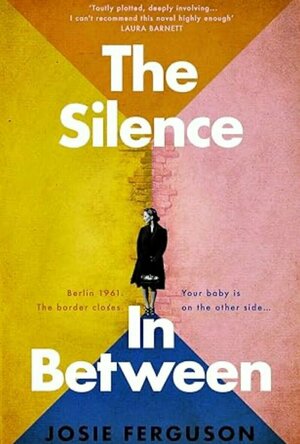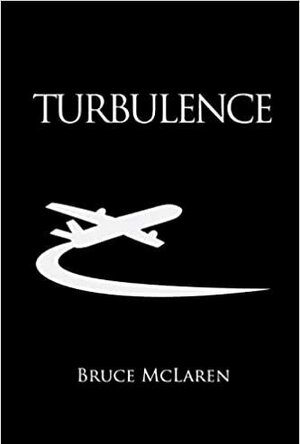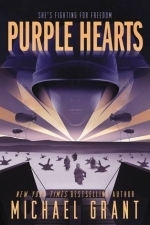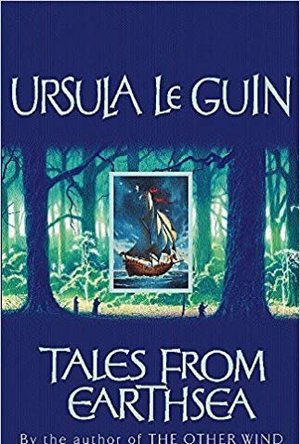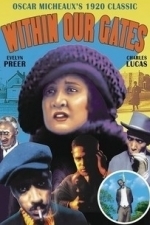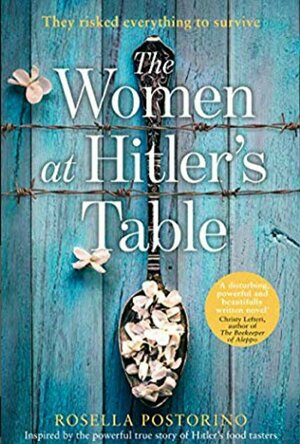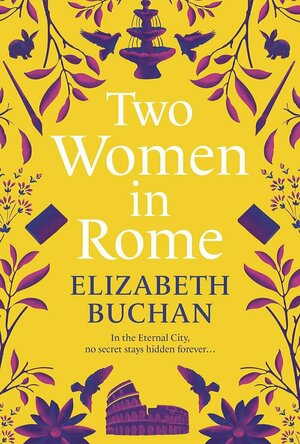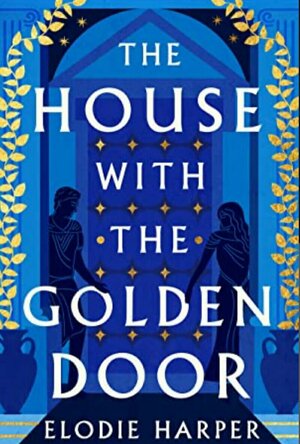Search
Search results
ClareR (5885 KP) rated The Silence In Between in Books
Dec 2, 2024
The Silence In Between is a dual timeline story. In 1961, Lisette takes her sick baby to a West Berlin hospital for treatment. She returns to her home in the East of the city to wash, change clothes and have some sleep, and the next morning she wakes to find the Wall has been erected overnight. She can’t go back for her baby. This traumatic event causes her to lose her voice - which takes her back to the war and the last time she lost her voice.
Lisette lived in Berlin with her mother, and during the last days of WW2, she experienced what many women did at the hands of the Russians. This is brutal, and explains a lot about why Lisette is the mother she is to her daughter Elly.
Elly knows that the only way to make her mother happy is to get the baby back - no matter the cost. She’s a brave, resourceful young woman, who takes death defying risks for her mother.
There’s a lot of hope in this book of survival and loss. Elly is a symbol of determination - she never gives up, and her family is at the heart of all her actions.
The two female characters, mother and daughter, are exceptional women. The history behind their lives has been well researched and is believable, and their story has stayed with me well after finishing this book.
Highly recommended.
Lisette lived in Berlin with her mother, and during the last days of WW2, she experienced what many women did at the hands of the Russians. This is brutal, and explains a lot about why Lisette is the mother she is to her daughter Elly.
Elly knows that the only way to make her mother happy is to get the baby back - no matter the cost. She’s a brave, resourceful young woman, who takes death defying risks for her mother.
There’s a lot of hope in this book of survival and loss. Elly is a symbol of determination - she never gives up, and her family is at the heart of all her actions.
The two female characters, mother and daughter, are exceptional women. The history behind their lives has been well researched and is believable, and their story has stayed with me well after finishing this book.
Highly recommended.
BookInspector (124 KP) rated Turbulence (The Wanderer #1) in Books
Sep 24, 2020
This book is really different from what I would normally read, and I think it’s one of those “either you love it or hate it” books and it definitely should not be judged by its cover. (I think it doesn’t really represent the book and it looks very cold) I read it in one day because to me it was awesome. This book is a collection of twelve trips between different destinations and every story talks about his encounters with women. The main character is an archaeologist and this journey starts when he was 22 years old. He doesn’t have a name or an obvious background story, but the reader can get a lot of snippets of his life through the stories. Everything, from appearance, careers even destinations suggests this book to be somehow directly related to the author himself. Was it real encounters or fictional? That’s what left me very intrigued.
I don’t normally like philosophical reads, but in this one, author disguised and blended in these parts very creatively. I do love to learn new things and facts, especially if it is related to history, and for me, all these parts were an absolute joy to read. I really loved different settings chosen for this novel as well, as I got a glimpse of different cultures and different countries. I really liked that author chose different story variations in this book, sometimes he used to get lucky with the women he met and sometimes he missed the chance or chose not to get involved. It was refreshing and very believable changes of course and I was very interested of what the next story will bring. My absolute favourite was the religious discussions. I think the author will make many Christians unhappy, but I loved all the supporting historical facts he mentioned in this book regarding religion. I don’t even have to mention any research for this book, the author has a PhD degree in history/archaeology so I trust all the information he provided. :)
The writing style of this novel is very poetic and absolutely beautiful. B. McLaren has an amazing way of portraying different topics and uniting them all in a wonderfully flowing story. I do have to throw in a disclaimer that there are some discussion and scenes regarding sex and alcohol, so this book is not suitable for young readers. The chapters were quite long for my liking, but they passed quite quickly because I used to get very absorbed in the story itself. I liked how the author decided to end this story and I think it rounded up this book well. So, to conclude, I had a great fun reading this funny, philosophical one man’s journey through life and his encounters with different women all over the world. I learned a lot, so if you like history, travelling and a little bit of philosophical discussion I think you will enjoy this book :)
I don’t normally like philosophical reads, but in this one, author disguised and blended in these parts very creatively. I do love to learn new things and facts, especially if it is related to history, and for me, all these parts were an absolute joy to read. I really loved different settings chosen for this novel as well, as I got a glimpse of different cultures and different countries. I really liked that author chose different story variations in this book, sometimes he used to get lucky with the women he met and sometimes he missed the chance or chose not to get involved. It was refreshing and very believable changes of course and I was very interested of what the next story will bring. My absolute favourite was the religious discussions. I think the author will make many Christians unhappy, but I loved all the supporting historical facts he mentioned in this book regarding religion. I don’t even have to mention any research for this book, the author has a PhD degree in history/archaeology so I trust all the information he provided. :)
The writing style of this novel is very poetic and absolutely beautiful. B. McLaren has an amazing way of portraying different topics and uniting them all in a wonderfully flowing story. I do have to throw in a disclaimer that there are some discussion and scenes regarding sex and alcohol, so this book is not suitable for young readers. The chapters were quite long for my liking, but they passed quite quickly because I used to get very absorbed in the story itself. I liked how the author decided to end this story and I think it rounded up this book well. So, to conclude, I had a great fun reading this funny, philosophical one man’s journey through life and his encounters with different women all over the world. I learned a lot, so if you like history, travelling and a little bit of philosophical discussion I think you will enjoy this book :)
I really like this book. I would buy this book for me, or for a friend. I’d keep a copy in my car to hand out to someone I though needed it. I’d recommend it to any woman who has been told she should “be above rubies” and should mirror a P.31 woman, but never given a practical to-do list on how to make that happen.
I mean, real Godly women wouldn’t need that to-do list, right? They would just know. They would read the Bible and just understand without help.
Nope. I’m a “to-do list” kind of girl!
This book was awesome. It goes through the history and background of specific words, how illustrations used in the Bible translates to our day and age, and what that means for us. It was beautiful and, most importantly, encouraging.
I mean, real Godly women wouldn’t need that to-do list, right? They would just know. They would read the Bible and just understand without help.
Nope. I’m a “to-do list” kind of girl!
This book was awesome. It goes through the history and background of specific words, how illustrations used in the Bible translates to our day and age, and what that means for us. It was beautiful and, most importantly, encouraging.
Hazel (1853 KP) rated Purple Hearts in Books
Oct 24, 2017
Reimagined History
This ARC was provided by the publisher via NetGalley in exchange for an honest review
An epic tale of a reimagined World War II comes to an explosive end in this third and final book Purple Hearts. Michael Grant created an alternative history in which women were allowed to enter the army and fight alongside the men on the front lines in Europe. Having earned accolades, promotions and the right to go home to America at the conclusion of the previous book, Rio, Frangie and Rainy decide to stay for the remains of the war. It is 6th June 1944, and the battle on the sands of Omaha Beach is about to begin – D-Day.
The story rushes into the horrors of the D-Day landings where Rio, now a Sergeant, is leading her platoon through the treacherous battleground, whilst Frangie, the medic, tries to patch up fallen comrades. The author teases the reader with the introduction of new characters who promptly get killed during this fateful day and battles further along the line. There is no sugar coating the horrific experience of soldiers and civilians, regardless of whether the scenes are fictionalized or not.
The difficulty with writing a work of fiction about the final years of World War II is that the majority of readers will already know the facts. Therefore, it was impossible for Grant to compose a drastic alternative history. Despite the inclusion of women soldiers, the main events occur exactly as they did in reality, beginning with D-Day before moving on to Liberated France, the Hürtgen Forest, the Battle of the Bulge, and, eventually, VE Day.
The three main characters have undergone complete transformations since the beginning of book one. No longer are they the innocent girls mocked for the belief they could be as strong as male soldiers. As horror after horror unfolds, readers are left with only the hope that these three survive.
Throughout book one and two, the narrative was interspersed with a commentary from an anonymous female soldier in a bed at the 107th evacuee hospital in Würzburg, Germany. As promised at the beginning of the series, readers finally find out which character this nameless voice belongs to, although it is dragged out until the final pages of the book.
The title, Purple Hearts, refers to the medal earned by soldiers injured in battle. Rio, Frangie and Rainy have each received one, along with a few other characters. Unfortunately, many are killed in the battles, some who have been in the story from the start, making this an extremely shocking book. It goes to show how dangerous war is and the brutality WWII soldiers experienced. It is a surprise that as many survived as they did.
Although at this point the main focus of the story is the war, there is still the underlying theme of equality, both for women and for black people. Frangie provides the insight into the segregation of blacks, being assigned to black-only patrols and having white patients refuse to be treated by her. However, as the war gets more violent, these lines get blurred until it is (mostly) no longer important the colour of a soldier or medic’s skin.
Purple Hearts is a brilliant end to a challenging series. Readers become invested in the characters and are drawn into a story that is so true to form that it is easy to forget that women did not actually take part in the fighting. Evidently well researched, Michael Grant has penned a series that educates whilst it entertains, opening readers’ eyes to the truth about war. This is nothing like a textbook full of facts and figures, it is a moving, personal (forget the fictional bit) account of what WWII was really like. Written with young adults in mind, this is a great series for both teens and older readers.
An epic tale of a reimagined World War II comes to an explosive end in this third and final book Purple Hearts. Michael Grant created an alternative history in which women were allowed to enter the army and fight alongside the men on the front lines in Europe. Having earned accolades, promotions and the right to go home to America at the conclusion of the previous book, Rio, Frangie and Rainy decide to stay for the remains of the war. It is 6th June 1944, and the battle on the sands of Omaha Beach is about to begin – D-Day.
The story rushes into the horrors of the D-Day landings where Rio, now a Sergeant, is leading her platoon through the treacherous battleground, whilst Frangie, the medic, tries to patch up fallen comrades. The author teases the reader with the introduction of new characters who promptly get killed during this fateful day and battles further along the line. There is no sugar coating the horrific experience of soldiers and civilians, regardless of whether the scenes are fictionalized or not.
The difficulty with writing a work of fiction about the final years of World War II is that the majority of readers will already know the facts. Therefore, it was impossible for Grant to compose a drastic alternative history. Despite the inclusion of women soldiers, the main events occur exactly as they did in reality, beginning with D-Day before moving on to Liberated France, the Hürtgen Forest, the Battle of the Bulge, and, eventually, VE Day.
The three main characters have undergone complete transformations since the beginning of book one. No longer are they the innocent girls mocked for the belief they could be as strong as male soldiers. As horror after horror unfolds, readers are left with only the hope that these three survive.
Throughout book one and two, the narrative was interspersed with a commentary from an anonymous female soldier in a bed at the 107th evacuee hospital in Würzburg, Germany. As promised at the beginning of the series, readers finally find out which character this nameless voice belongs to, although it is dragged out until the final pages of the book.
The title, Purple Hearts, refers to the medal earned by soldiers injured in battle. Rio, Frangie and Rainy have each received one, along with a few other characters. Unfortunately, many are killed in the battles, some who have been in the story from the start, making this an extremely shocking book. It goes to show how dangerous war is and the brutality WWII soldiers experienced. It is a surprise that as many survived as they did.
Although at this point the main focus of the story is the war, there is still the underlying theme of equality, both for women and for black people. Frangie provides the insight into the segregation of blacks, being assigned to black-only patrols and having white patients refuse to be treated by her. However, as the war gets more violent, these lines get blurred until it is (mostly) no longer important the colour of a soldier or medic’s skin.
Purple Hearts is a brilliant end to a challenging series. Readers become invested in the characters and are drawn into a story that is so true to form that it is easy to forget that women did not actually take part in the fighting. Evidently well researched, Michael Grant has penned a series that educates whilst it entertains, opening readers’ eyes to the truth about war. This is nothing like a textbook full of facts and figures, it is a moving, personal (forget the fictional bit) account of what WWII was really like. Written with young adults in mind, this is a great series for both teens and older readers.
Eleanor Luhar (47 KP) rated Tales From Earthsea (Earthsea Cycle, #5) in Books
Jun 24, 2019
This is the fifth installation of The Earthsea Cycle.In this book is a collection of short stories from different eras and locations within Earthsea. There are tons of links to other tales in this series throughout this book, including character crossovers. There's even a whole section on describing Earthsea at the end, giving a real in-depth history of the land and it's cultures.
I am getting a little bored with this series, but I think it's just because of how the writing has a rather archaic feel. This writing really does help create the universe, but it's just not my thing. I appreciate how effective it is in creating the world of Earthsea and immersing you in the book, though.
My favourite tale in this book is the final one, where a woman is allowed entrance into Roke School. I'm interested in seeing if equality returns to Earthsea - women with power are looked down upon, whereas sorcerers, wizards and especially mages are respected for their power.
I will stil finish reading this series, despite not loving it as much as I maybe should. 3 stars.
I am getting a little bored with this series, but I think it's just because of how the writing has a rather archaic feel. This writing really does help create the universe, but it's just not my thing. I appreciate how effective it is in creating the world of Earthsea and immersing you in the book, though.
My favourite tale in this book is the final one, where a woman is allowed entrance into Roke School. I'm interested in seeing if equality returns to Earthsea - women with power are looked down upon, whereas sorcerers, wizards and especially mages are respected for their power.
I will stil finish reading this series, despite not loving it as much as I maybe should. 3 stars.
Jacqueline Stewart recommended Within Our Gates (1920) in Movies (curated)
ClareR (5885 KP) rated The Women at Hitler’s Table in Books
Dec 3, 2019
Even though The Women at Hitler’s Table doesn’t feature an appearance by Hitler himself, it is very much about Hitler’s Germany and how his paranoia directly affected the women who were forced into becoming his food tasters. 1943 saw a shift in the Second World War, the Allies and Russia began to take the upper hand, and Hitler saw assassination plots around every corner (he wasn’t far wrong, but it was generally instigated by his own side).
Rosa Sauer moves from Berlin to live with her husbands parents in the countryside, to escape the bombs that killed her parents. However, in doing so she draws attention to herself and ends up being ‘enlisted’ by the SS as one of the female food tasters at the Wolfschanze (Wolfs Lair). In some ways this is a privileged position - food is scarce and people are starving. Rosa and her fellow food tasters are guaranteed regular food, but each meal could be their last. They have no choice but to eat: SS guards watch their every mouthful. Some of the women are Hitler loyalists and see it as an honour to do this, whilst others (Rosa included) aren’t as keen. Rosa is beginning to see the cracks in the regime, and in fact has disagreed with the party’s politics for a long time. But she has chosen not to do or say anything - as many people did.
This book looks at what life was like for the ordinary Germans. Their loves, loyalties, secrets and the fear for both their present circumstances and their futures. This isn’t a comfortable read. It looks at some very unsettling subjects, and the fear of the women is palpable. I think the story would have stood up well without the romance element, but I’m sure some would disagree with me and would enjoy that aspect more.
I really liked the links with real historical figures: Claus Von Stauffenberg, some local nobility and a real food taster that the story was based on (Margot Wölk). I also liked the style in which this was written. It was dark, subdued, much like how I imagine the country felt as a whole at this point. I really did enjoy this book - it was an interesting and new angle to look at a period in history which we all feel that we know a lot about. Just when you thought you’d seen it all, Hitler’s female food tasters make their appearance....
Many thanks to NetGalley and Harper Collins for my copy of this book to read and review.
Rosa Sauer moves from Berlin to live with her husbands parents in the countryside, to escape the bombs that killed her parents. However, in doing so she draws attention to herself and ends up being ‘enlisted’ by the SS as one of the female food tasters at the Wolfschanze (Wolfs Lair). In some ways this is a privileged position - food is scarce and people are starving. Rosa and her fellow food tasters are guaranteed regular food, but each meal could be their last. They have no choice but to eat: SS guards watch their every mouthful. Some of the women are Hitler loyalists and see it as an honour to do this, whilst others (Rosa included) aren’t as keen. Rosa is beginning to see the cracks in the regime, and in fact has disagreed with the party’s politics for a long time. But she has chosen not to do or say anything - as many people did.
This book looks at what life was like for the ordinary Germans. Their loves, loyalties, secrets and the fear for both their present circumstances and their futures. This isn’t a comfortable read. It looks at some very unsettling subjects, and the fear of the women is palpable. I think the story would have stood up well without the romance element, but I’m sure some would disagree with me and would enjoy that aspect more.
I really liked the links with real historical figures: Claus Von Stauffenberg, some local nobility and a real food taster that the story was based on (Margot Wölk). I also liked the style in which this was written. It was dark, subdued, much like how I imagine the country felt as a whole at this point. I really did enjoy this book - it was an interesting and new angle to look at a period in history which we all feel that we know a lot about. Just when you thought you’d seen it all, Hitler’s female food tasters make their appearance....
Many thanks to NetGalley and Harper Collins for my copy of this book to read and review.
ClareR (5885 KP) rated Two Women in Rome in Books
Jun 15, 2021
Two Women in Rome is a truly captivating story set in two time periods. In the present day, Lottie is an archivist working in Rome who comes across a painting once owned by an English woman called Nina who died in the late 1970’s. The painting appears to be valuable, painted in the fifteenth century.
Lottie also finds Nina’s journal in her personal effects, and the more of it she reads, the more she wants to find out about her life.
I loved the details about Rome in both timelines - I’ve visited Rome and loved it. The strong female characters were also a big plus point for me. Lottie is a head archivist, she really knows what she’s doing and is confident in her abilities. Nina is also an assertive woman - she is often in new situations that many would find themselves floundering in (Ok, that sounds really vague, but I don’t want to give anything away!)
This is a book about secrets: about keeping them, and what happens when they are revealed - both good and bad. This isn’t a book that goes fast and hard in its revelations. Quite opposite in fact, and probably why I liked it so much. I love a well told story, and I really felt that I knew the women in this because of that feeling of not being rushed through the story.
There’s a fair amount of Italian politics in this, some of which I had never known about, so that was another plus point. I hadn’t realised that Italy had had quite such a tumultuous political life for so long after World War Two. The novel has a great mix of themes, actually: secrets, history, politics, life in Rome, betrayal, guilt. I think I’m becoming a bit of an Elizabeth Buchan fan because I really enjoyed her last book The Museum of Broken Promises, as well. Both books are set in Europe, with the aftereffects of great political upheavals, ostensibly going back to World War Two. This book is well worth reading - I’d definitely recommend it.
Many thanks to The Pigeonhole and NetGalley for my copy of this book.
Lottie also finds Nina’s journal in her personal effects, and the more of it she reads, the more she wants to find out about her life.
I loved the details about Rome in both timelines - I’ve visited Rome and loved it. The strong female characters were also a big plus point for me. Lottie is a head archivist, she really knows what she’s doing and is confident in her abilities. Nina is also an assertive woman - she is often in new situations that many would find themselves floundering in (Ok, that sounds really vague, but I don’t want to give anything away!)
This is a book about secrets: about keeping them, and what happens when they are revealed - both good and bad. This isn’t a book that goes fast and hard in its revelations. Quite opposite in fact, and probably why I liked it so much. I love a well told story, and I really felt that I knew the women in this because of that feeling of not being rushed through the story.
There’s a fair amount of Italian politics in this, some of which I had never known about, so that was another plus point. I hadn’t realised that Italy had had quite such a tumultuous political life for so long after World War Two. The novel has a great mix of themes, actually: secrets, history, politics, life in Rome, betrayal, guilt. I think I’m becoming a bit of an Elizabeth Buchan fan because I really enjoyed her last book The Museum of Broken Promises, as well. Both books are set in Europe, with the aftereffects of great political upheavals, ostensibly going back to World War Two. This book is well worth reading - I’d definitely recommend it.
Many thanks to The Pigeonhole and NetGalley for my copy of this book.
MaryAnn (14 KP) rated Unimaginable: What Our World Would Be Like Without Christianity in Books
Mar 5, 2019
What would our world be like without Christianity? Jeremiah J. Johnston has taken time to write his thoughts about this. A world without Christianity would be a very dark place to be.
In his book, he looks at how Christianity has stood against the wrongs of slavery, racism, eugenics, and injustices toward women and children. How democracy, freedom and a whole value, and modern education and the legal systems all owe a lot to Christianity.
In his research, Mr. Johnston takes us back through church history and we explore what was and if we aren't careful what can be again.
This is a very thoroughly researched book, full of insight and leaves the reader thankful for Christianity.
I would recommend this book to read. It is informative and eye-opening.
I received this book free from the publisher. I was not required to write a positive review and the opinions I have expressed are my own. I am disclosing this in accordance with the Federal Trade Commission’s 16 CFR, Part 255 : “Guides Concerning the Use of Endorsements and Testimonials in Advertising.”
In his book, he looks at how Christianity has stood against the wrongs of slavery, racism, eugenics, and injustices toward women and children. How democracy, freedom and a whole value, and modern education and the legal systems all owe a lot to Christianity.
In his research, Mr. Johnston takes us back through church history and we explore what was and if we aren't careful what can be again.
This is a very thoroughly researched book, full of insight and leaves the reader thankful for Christianity.
I would recommend this book to read. It is informative and eye-opening.
I received this book free from the publisher. I was not required to write a positive review and the opinions I have expressed are my own. I am disclosing this in accordance with the Federal Trade Commission’s 16 CFR, Part 255 : “Guides Concerning the Use of Endorsements and Testimonials in Advertising.”
ClareR (5885 KP) rated The House with the Golden Door in Books
Dec 13, 2022
Amara’s story in The House with the Golden Door picks up where The Wolf Den ended. Amara now lives in a house provided by her patron, Rufus, and she must cater to his every whim, even though she’s a freed woman. He provides all that she needs to live - without him, she may as well return to the Wolf Den.
But Amara feels a responsibility to free or buy the friends she has left behind.
I loved the world building in this book. And even though she’s supposedly free, she is still constrained by her sex and status. Being a woman doesn’t seem like much fun at any point in history. Whilst Roman women may have had more rights than many others, I struggled to see any advantages. Whilst I live reading about history, I have NO wish to travel back in time. Only men could do that in relative safety, I think. And I’m happy with my antibiotics and my rights, thanks!
So Amara decides to work with her strengths, and continues to sing for money with Victoria and two slaves that she buys with the help of a friend.
It becomes apparent though, that Rufus is becoming bored with Amara, and she starts playing a dangerous game.
I seriously can’t wait until the third part of this trilogy. You just know that there’s going to be a pretty BIG event coming up (Vesuvius, anyone?!), and I’m desperate to know how this all plays out.
Highly recommended.
But Amara feels a responsibility to free or buy the friends she has left behind.
I loved the world building in this book. And even though she’s supposedly free, she is still constrained by her sex and status. Being a woman doesn’t seem like much fun at any point in history. Whilst Roman women may have had more rights than many others, I struggled to see any advantages. Whilst I live reading about history, I have NO wish to travel back in time. Only men could do that in relative safety, I think. And I’m happy with my antibiotics and my rights, thanks!
So Amara decides to work with her strengths, and continues to sing for money with Victoria and two slaves that she buys with the help of a friend.
It becomes apparent though, that Rufus is becoming bored with Amara, and she starts playing a dangerous game.
I seriously can’t wait until the third part of this trilogy. You just know that there’s going to be a pretty BIG event coming up (Vesuvius, anyone?!), and I’m desperate to know how this all plays out.
Highly recommended.
